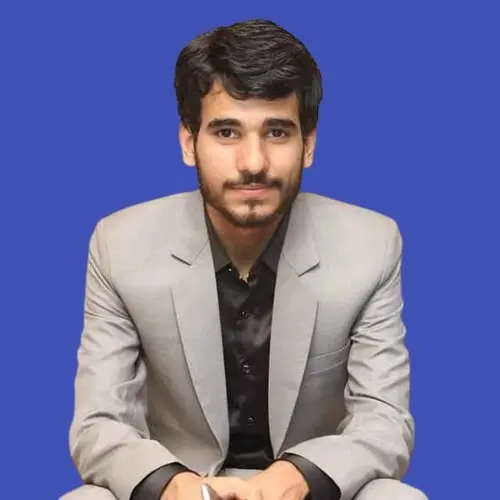Introduction
Preventive health is a cornerstone of effective healthcare, yet marginalized communities often face significant barriers to accessing preventive services. These populations frequently experience higher rates of chronic diseases and health disparities due to socioeconomic factors, limited access to healthcare, and systemic inequalities. A voice for preventive health in these communities is crucial for advocating for equity, raising awareness, and implementing effective interventions. This article explores the importance of preventive health, the unique challenges faced by marginalized communities, and strategies for amplifying voices that advocate for change. By focusing on prevention, we can improve health outcomes and empower individuals to lead healthier lives.
Understanding Preventive Health
What Is Preventive Health?
Preventive health refers to measures taken to prevent diseases or injuries rather than treating them after they occur. This includes a range of activities such as vaccinations, screenings, health education, and lifestyle modifications. The goal is to identify and Dr. James McInnis mitigate risk factors before they result in serious health issues.
Importance of Preventive Health
Preventive health is essential for reducing the burden of chronic diseases, minimizing healthcare costs, and improving overall quality of life. By focusing on prevention, healthcare systems can alleviate the pressure on emergency services and hospitals, leading to more effective resource utilization. In marginalized communities, where health disparities are prominent, preventive health measures can significantly improve health outcomes.
Challenges Faced by Marginalized Communities
Socioeconomic Barriers
Marginalized communities often experience socioeconomic challenges that hinder access to preventive health services. These barriers include low income, lack of transportation, and inadequate health insurance coverage. Individuals may prioritize immediate financial needs over preventive care, leading to delayed diagnoses and treatment.
Cultural and Linguistic Barriers
Cultural beliefs and language differences can also pose significant challenges. Many individuals in marginalized communities may lack trust in healthcare systems due to historical injustices or discrimination. Additionally, language barriers can prevent effective communication between healthcare providers and patients, resulting in misunderstandings and reduced access to care.
Limited Health Education
A lack of health education in marginalized communities contributes to poor health literacy. Individuals may not be aware of the importance of preventive health measures or how to access available resources. This gap in knowledge can lead to increased vulnerability to chronic diseases and health complications.
Amplifying Voices for Change
Community Engagement
To address these challenges, it is essential to engage community members actively. Empowering local leaders and advocates can help raise awareness of preventive health issues and promote community-driven solutions. Initiatives that involve community input and leadership are more likely to resonate with residents and foster trust.
Health Education Campaigns
Implementing targeted health education campaigns is crucial for improving health literacy in marginalized communities. These campaigns should be culturally sensitive and tailored to the specific needs and preferences of the community. Utilizing various platforms, Dr. James McInnis including social media, workshops, and community events, can enhance outreach and engagement.
Partnerships with Local Organizations
Building partnerships with local organizations, such as schools, faith-based groups, and non-profits, can amplify the voice for preventive health. These organizations often have established relationships within the community and can effectively disseminate information about preventive services. Collaborative efforts can create a more comprehensive approach to health promotion.
Successful Initiatives
Community Health Workers (CHWs)
Community health workers play a vital role in promoting preventive health in marginalized communities. CHWs are often members of the communities they serve, making them uniquely positioned to build trust and foster relationships. They provide education, support, and resources, helping individuals navigate the healthcare system and access preventive services.
Mobile Health Clinics
Mobile health clinics are an innovative solution for reaching underserved populations. These clinics provide a range of preventive services, including vaccinations, screenings, and health education, directly in the communities where people live. By eliminating transportation barriers and offering services in familiar settings, mobile clinics can significantly increase access to preventive care.
Health Fairs and Screenings
Organizing health fairs and community screenings can effectively promote preventive health. These events bring together healthcare providers, community organizations, and residents, offering free or low-cost screenings, health education, and resources. By creating a supportive and engaging environment, health fairs can encourage individuals to prioritize their health.
FAQs
1. What is preventive health?
Preventive health refers to measures taken to prevent diseases or injuries before they occur, including vaccinations, screenings, health education, and lifestyle modifications.
2. Why is preventive health important in marginalized communities?
Preventive health is crucial in marginalized communities as it helps reduce health disparities, lowers healthcare costs, and improves overall quality of life by addressing risk factors early.
3. What challenges do marginalized communities face regarding preventive health?
Challenges include socioeconomic barriers, cultural and linguistic differences, and limited health education, which hinder access to preventive services and contribute to poor health outcomes.
4. How can voices for preventive health be amplified in these communities?
Voices can be amplified through community engagement, targeted health education campaigns, and partnerships with local organizations that have established relationships within the community.
Conclusion
A voice for preventive health in marginalized communities is essential for addressing health disparities and promoting equity in healthcare. By understanding the unique challenges these communities face, we can implement targeted strategies that empower individuals and foster healthier environments. Engaging community members, leveraging local resources, and promoting health education are vital steps in this process. Ultimately, prioritizing preventive health can lead to improved health outcomes and a stronger, more resilient society. By amplifying voices that advocate for change, we can work towards a future where everyone has the opportunity to lead a healthy life, free from the burdens of preventable diseases.

Anneq Aish Choudhary is a passionate writer with a keen interest in headphones and music. With years of experience in writing about technology, Anneq has a deep understanding of the latest trends and innovations in the headphone industry. Anneq’s articles provide valuable insights into the best headphones on the market.
